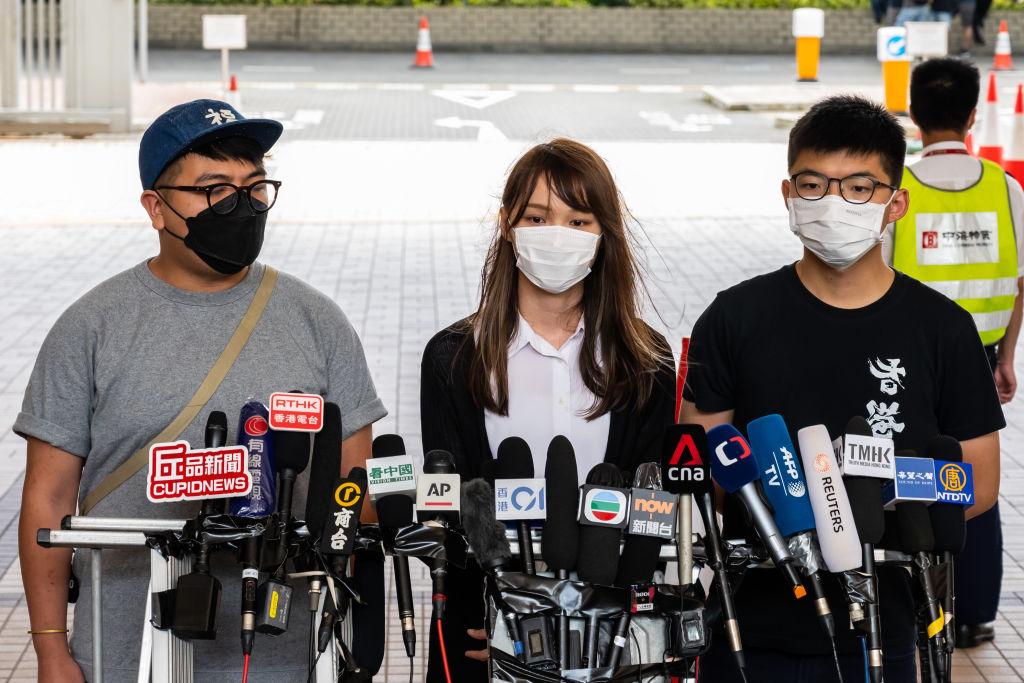
Planet A
At the G20 summit this week, Japanese Prime Minister Yoshihide Suga pledged that his country would be carbon neutral by 2050. This would see Japan—the world’s seventh largest emitter of greenhouse gases—join Europe and South Korea in aiming for carbon neutrality by the middle of the century.
Japan’s policy will have significant economic implications for Australia. It’s one of the largest importers of Australian coal and gas, accounting for nearly half of Australia’s total coal exports and more than a third of its liquefied natural gas exports. Japan’s decision could present a critical economic challenge for Australia in the coming decades, and it will need to adapt to new and innovative methods of energy generation to stay competitive in international markets.
One possible new avenue could be found in the agreement Australia signed with Japan in January to export hydrogen. However, hydrogen production needs to be green to meet emissions targets and there is dispute among experts about the economic viability of the technology at this stage.
Democracy watch
Prominent Hong Kong activists Joshua Wong, Agnes Chow and Ivan Lam have been detained after pleading guilty on charges of organising, inciting and participating in a pro-democracy protest held outside a police station in 2019. The three activists were key members of the student-led Umbrella Movement that emerged during Hong Kong’s 2014 democracy protests, as well as the Demosisto political party, which has been disbanded following the implementation of a controversial national security law that targets ‘subversion, secessionism, terrorism and collusion with foreign forces’.
The charges come amid the Chinese government’s crackdown on dissidents in Hong Kong, which has resulted in more than 10,000 arrests and 2,000 prosecutions in the past year. During the court hearing, Wong said he was confident that ‘neither prison bars, nor election bans, nor any other arbitrary powers would stop us from activism’. Despite these high-profile arrests and the erosion of freedoms in Hong Kong, pro-democracy activists appear determined not to abandon their cause.
Information operations
As artificial intelligence makes it easier to generate fake content, the New York Times has created its own AI system to detect ‘fake faces’. Deepfakes were largely absent during the US presidential election; traditional deceptions like lies and news amplification were more widely used to spread disinformation. However, ASPI’s Elise Thomas discovered a fake account using an AI-generated profile picture on Twitter to promote a fabricated report claiming a connection between US President-elect Joe Biden and the Chinese government.
Extensive research is already underway to detect faces created by generative adversarial network technologies, but recent developments in natural language models like GPT-3 present growing threats. In August, a US university student convinced tens of thousands of people that a GPT-3-generated blog was authentic.
New, powerful AI-enabled tools will drive future disinformation campaigns. Combating deepfake operations will require further research to support more effective counter-disinformation strategies for governments and social media platforms.
Follow the money
China’s financial regulators have blocked the planned listing of Chinese fintech company Ant Group on the Shanghai and Hong Kong stock exchanges, reportedly after personal intervention by Chinese President Xi Jinping.
The abrupt decision, made just days before the listing was due, is believed to be an attempt to assume a greater degree of oversight and control over Ant Group after founder Jack Ma criticised China’s regulatory institutions last month. Due to its rapid growth and dominance in the digital payments sector —and increasingly in wealth management services—China’s central bank deemed the company could pose a systemic risk to the country’s financial system.
Ma has hit back at the proposed regulations, which include a requirement for Ant to hold more capital.
The episode indicates that despite the initially favourable regulatory environment provided to fintech firms, Xi is willing to act swiftly in response to any moves that may weaken the government’s financial control.
Terror byte
An analysis piece published this week looks at the tensions between law enforcement and human rights in the context of counterterrorism operations. There have been several cases in the US and the UK where government measures were found to be in breach of international human rights laws.
The European Union is currently considering prohibiting end-to-end encryption, which is used to protect users’ privacy on messaging apps like WhatsApp. This would allow authorities to access messages in order to intercept illegal activity, with a focus on countering terrorism. The proposal has been on the table for years, but many remain opposed to it due to privacy vulnerabilities and the fact that it would contradict Europe’s General Data Protection Regulation.
These examples show that, too often, states are tempted to expand their powers under the banner of national security without ensuring civil liberties are protected and highlight the importance of finding an appropriate balance between fighting terrorism and protecting human rights.